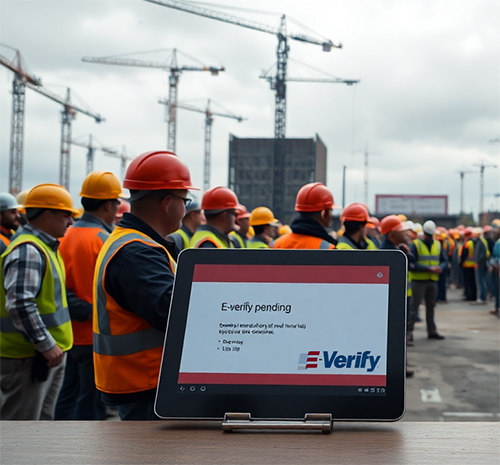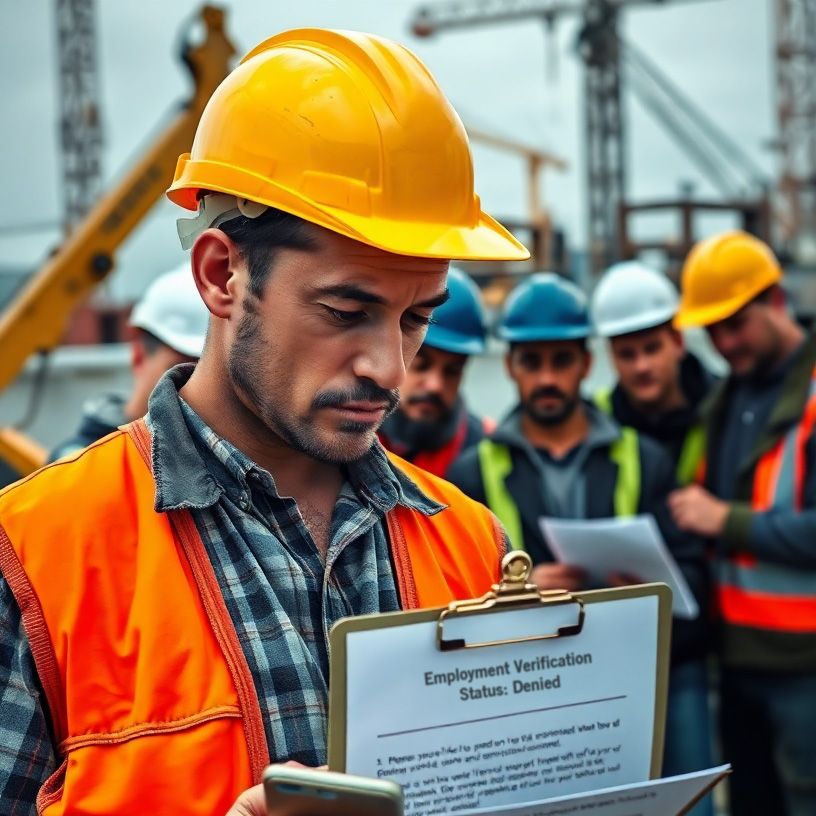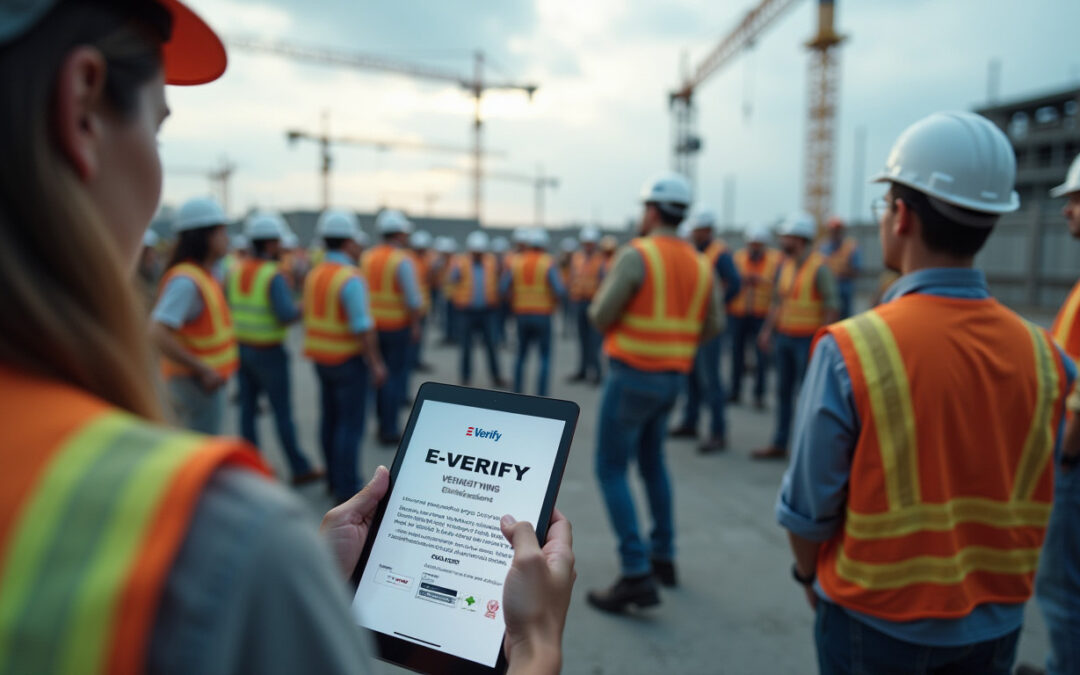#2 of 5 in our series, “The New ICE Age”
About This Series
The new administration has committed to higher tariffs and ever greater enforcement of legal employment laws. Because of its dependence on materials and immigrant labor, construction is particularly at risk. In this series, Safe Site Check In will summarize the risks and how construction project owners and contractors need to prepare themselves for “The New ICE AGE”. We’ll also suggest how Safe Site Check In can help mitigate enforcement risks from project owners down to workers.
What if Every State Becomes Like Florida?
Florida recently enacted a law requiring most employers to use E-Verify, a federal system for verifying employment eligibility. This has sparked discussions about whether a similar mandate should be implemented nationwide. Such a move would have profound effects on employers, workers, and the U.S. economy. Let’s delve into the potential consequences.
What is E-Verify?
E-Verify is an internet-based system operated by the U.S. Department of Homeland Security (DHS). It allows employers to electronically confirm the employment eligibility of their new hires by comparing information from the employee’s Form I-9 to other federal databases.
E-Verify is, like many government websites, finicky and not particularly easy to use. Confirmations of eligibility are not always immediate, and there’s no estimate when even tentative approval to hire might be forthcoming.
Employers have to apply to the program to prevent fraudulent use and train their HR resources on its use. Because it requires highly private documents, mostly on paper, there’s high secure filing costs. And there’s no API for other hiring apps to use.
That being said, having a federally approved case file is your best defense against fines, civil or even criminal prosecution based on your direct worker employment and indirectly via subcontractors.

What if E-Verify Went National Across the Construction Industry?
A federal E-Verify mandate for the Construction industry would significantly expand the system’s reach, potentially requiring all U.S. employers to use it, regardless of their size or industry. This could lead to:
- Increased Compliance: More employers would be verifying the employment eligibility of their workers, potentially reducing the number of unauthorized individuals in the workforce.
- Greater Administrative Burden: Businesses would face new administrative tasks and costs associated with implementing E-Verify procedures, training staff, and maintaining records.
- Slower Hiring Processes: E-Verify checks could add complexity and time to the hiring process, potentially delaying hiring timelines.
Impacts on Workers
A nationwide E-Verify mandate could have mixed effects on workers:
- Reduced Opportunities for Unauthorized Workers: Individuals without work authorization could find it much harder to secure employment, leading to job losses and economic hardship.
- Potential for Wage Suppression: Industries reliant on immigrant labor might see wage suppression as the pool of eligible workers shrinks.
- Increased Vulnerability: Unauthorized workers who lose jobs could become more susceptible to exploitation and unfair labor practices.
Social and Political Implications
Beyond the economic impacts, a federal E-Verify mandate could:
- Reignite the Immigration Debate: It would likely intensify discussions around immigration reform and border security.
- Heighten Social Tensions: The mandate could exacerbate social divisions and discrimination against immigrant communities.
Economic Ripple Effects
The economic consequences of a national E-Verify mandate are complex and could include:
- Labor Shortages: Certain industries, particularly those heavily reliant on immigrant labor, will face labor shortages, impacting productivity and economic growth.
- Wage Inflation: Competition for a smaller pool of authorized workers could drive up wages in some sectors.
- Increased Tax Revenue: With more workers properly documented, tax revenue could potentially increase.
Challenges and Considerations
Implementing a national E-Verify mandate wouldn’t be without its challenges:
- Technological Concerns: E-Verify has faced criticism for accuracy issues and potential errors. But there’s no alternative, and the system should improve over time.
- Enforcement Difficulties: Effectively enforcing a nationwide mandate would require significant resources and could be challenging if federal budgets are also cut.
A Complex Issue
A federal E-Verify mandate would represent a significant policy shift with potentially far-reaching consequences. Presumably the new administration will weigh the potential benefits and drawbacks carefully, considering the impacts on employers, workers, and the overall economy.
However, our experience with the Trump tariffs shows that such a mandate in all or part will be attempted. Businesses in Florida have had to adjust, and if Florida’s economy continues to flourish, there’s little reason to believe a national mandate won’t be proposed.

Want to learn more? Check out these resources:
- U.S. Citizenship and Immigration Services (USCIS) E-Verify Website: https://www.e-verify.gov/
- National Immigration Forum: https://immigrationforum.org/
- Center for Immigration Studies: https://cis.org/
Safe Site Check In Can Help
Protect yourself and your company by using our digital photo badges and worker profile data and get all your workers building again fast.

David Brian Ward is a CEO and Founder of Safe Site Check In LLC, a digital jobsite management platform launched in 2020 for the Construction industry. With over 40 years of experience in the technology industry, having launched and grown several successful companies. Mr. Ward is a now a SaaS entrepreneur and innovation leader in the Construction industry.

